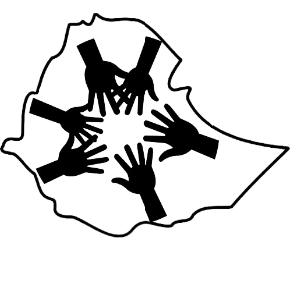Depression
What Is Depression?
Depression, also known as major depressive disorder (MDD), is a mental health condition characterized by persistent feelings of sadness, hopelessness, and a lack of interest or pleasure in activities. It is not simply a passing mood but a complex and enduring state of emotional and psychological distress.
Types of Depression
– Major Depressive Disorder (MDD): The most common form of depression, characterized by a persistent low mood and loss of interest or pleasure in activities.
– Persistent Depressive Disorder (PDD): A chronic form of depression lasting for two years or longer.
– Bipolar Disorder: Involves cycles of depression and mania (periods of elevated mood and energy).
– Seasonal Affective Disorder (SAD): Occurs seasonally, often in the winter months, due to reduced exposure to natural light.
– Postpartum Depression: Affects some women after giving birth, resulting in feelings of sadness and low energy.
Symptoms of Depression
Depression can manifest through a range of emotional, cognitive, physical, and behavioral symptoms. Individuals may experience a combination of the following:
– Persistent sadness or feelings of emptiness
– Frequent crying spells
– Irritability, anger, or frustration, even over minor issues
– Loss of interest or pleasure in previously enjoyed activities (anhedonia)
– Negative or pessimistic thinking patterns
– Persistent self-criticism or feelings of guilt
– Thoughts of death or suicide
– Changes in appetite or weight (either significant weight loss or gain)
– Sleep disturbances (insomnia or excessive sleep)
– Physical aches and pains with no apparent cause
– Social withdrawal and isolation
– Decreased productivity at work or school
– Neglect of personal hygiene and self-care
– Substance abuse or reliance on alcohol or drugs as a coping mechanism
Causes and Risk Factors
Depression results from a complex interaction of social, psychological, and biological factors. People who have gone through adverse life events (unemployment, bereavement, traumatic events) are more likely to develop depression. Depression can, in turn, lead to more stress and dysfunction and worsen the affected person’s life situation and the depression itself. A family history of depression may increase an individual’s susceptibility.
Depression is closely related to and affected by physical health. Many of the factors that influence depression (such as physical inactivity or harmful use of alcohol) are also known risk factors for diseases such as cardiovascular disease, cancer, diabetes and respiratory diseases. In turn, people with these diseases may also find themselves experiencing depression due to the difficulties associated with managing their condition.
Treatment Options
- Psychotherapy (Talk Therapy)
- Medications: Antidepressant Medications: These include selective serotonin reuptake inhibitors (SSRIs) like Fluoxetine, serotonin-norepinephrine reuptake inhibitors (SNRIs) like Venlafaxine, tricyclic antidepressants (TCAs) like Amitriptyline, and others.
- Lifestyle Changes like regular exercise, healthy diet, good sleep, stress reduction.
- Electroconvulsive Therapy (ECT) may be considered for severe, treatment-resistant depression or when other treatments are ineffective. It involves controlled electrical stimulation of the brain to induce a brief seizure, which can lead to changes in brain chemistry.
Living with Depression
Managing depression involves ongoing efforts to improve well-being and build resilience. Here are some strategies for living with depression:
- Coping Strategies: such as problem-solving skills and stress reduction techniques, challenging negative thought patterns and practicing self-compassion, engaging in relaxation exercises, deep breathing, or progressive muscle relaxation to manage anxiety and stress.
- Building a Support Network: like reaching out to friends and family for emotional support or joining support groups or therapy groups.
- Self-Care Practices: Prioritize self-care activities that promote physical and emotional well-being and maintaining a consistent sleep schedule and practice good sleep hygiene.
- Managing Work and Relationships: Communicate openly with supervisors and colleagues about your condition, when comfortable, to explore accommodations if needed.
Prevention and Early Intervention
- Recognizing Warning Signs
– Educate yourself and others about the common signs and symptoms of depression.
– Encourage open communication about mental health within families and communities.
- Promoting Mental Health Awareness
– Raise awareness about mental health issues and challenge stigma through public education campaigns.
– Encourage discussions about mental health in schools, workplaces, and communities.
- Reducing Stigma
– Challenge negative stereotypes and attitudes toward mental health conditions.
– Promote understanding and empathy toward individuals with depression.
- Seeking Help Proactively
– If you or someone you know is experiencing depression symptoms, seek help from a mental health professional.
– Early intervention can lead to more effective treatment outcomes and prevent the condition from worsening.
References
- World Health Organization (WHO). (2023). Depression.
https://www.who.int/news-room/fact-sheets/detail/depression
- American Psychiatric Association
https://www.psychiatry.org/patients-families/depression/what-is-depression
- Johns Hopkins Medicine
https://www.hopkinsmedicine.org/health/conditions-and-diseases/major-depression
By Dr. Biruk Wogene Teklu (General Practitioner)
በ ዶ/ር ብሩክ ወገኔ ተክሉ (ጠቅላላ ሐኪም)
